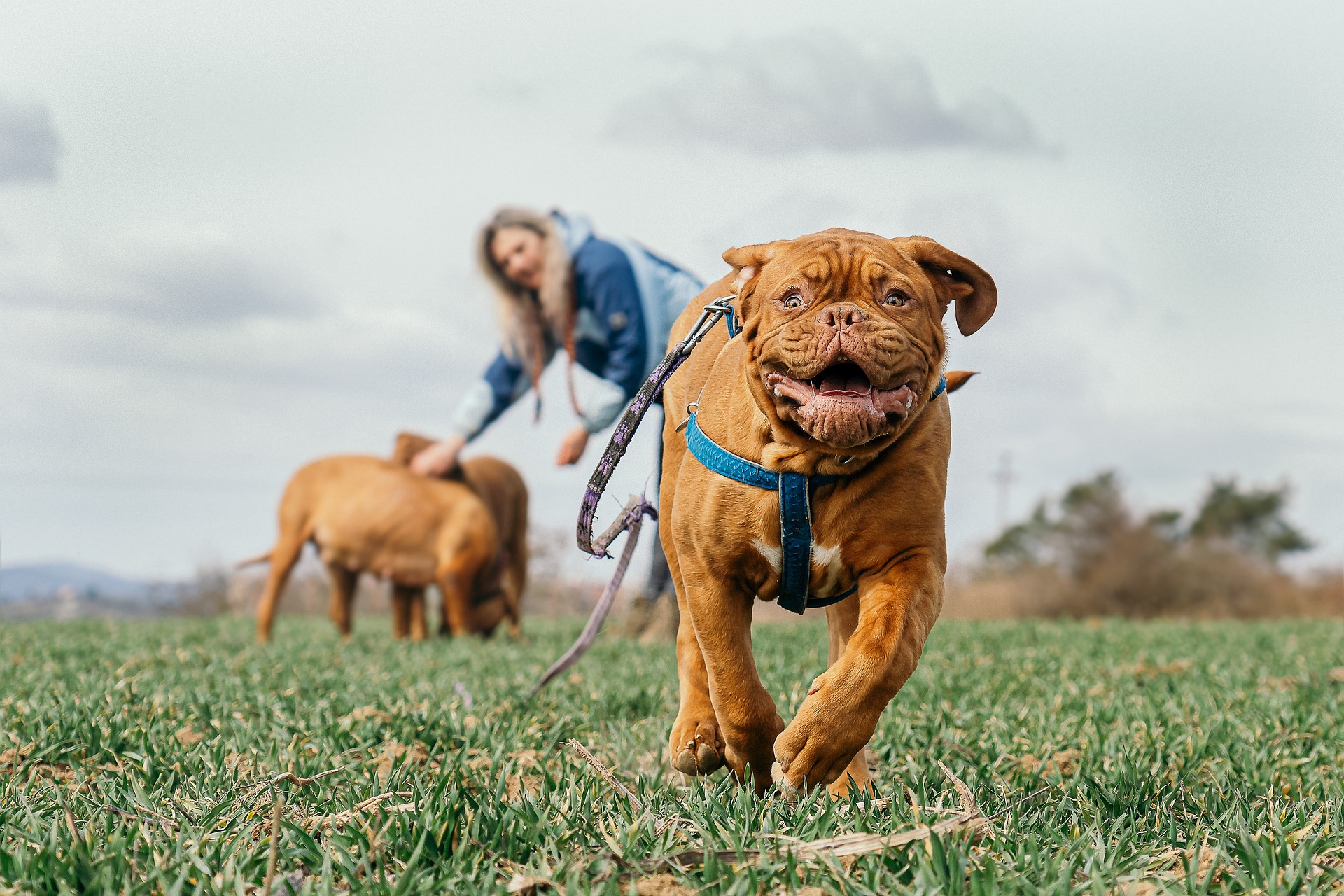As pet owners, we want the best for our furry, feathered and scaly friends. We want them to live long, healthy and happy lives. But being a pet owner is more than just providing food and shelter. It’s about understanding their unique needs, ensuring their well-being and creating an environment where they can thrive.
Understanding the basics of pet care, from feeding them high-quality beef dog food to grooming essentials, can help you nurture your pet and form a long-lasting bond. Explore the following tips every pet owner should know before adopting a pet.
Understand Your Pet’s Dietary Needs
Proper nutrition is essential for the overall health and well-being of your pet. Each species has unique dietary needs based on its physiology, metabolism, and natural diet in the wild. Understanding your pet’s nutritional requirements is vital in providing them with the right balance of nutrients for optimal growth, energy, and immune function. Always prioritize high-quality, species-specific food and avoid feeding them human food, which can harm their health.
Consulting with a veterinarian can help you determine your pet’s ideal diet, portion sizes, and any dietary restrictions. For example, RawMix dog food can be a suitable option for dogs with sensitive stomachs because it’s designed to be easily digestible while still providing all the essential nutrients.
Some specific nutritional needs for common pets include:
Dogs: Dogs are omnivores with varied nutritional needs based on breed, age, and health. A balanced diet includes high-quality protein, fats, carbs, vitamins, and minerals. Animal sources like chicken, beef, lamb or fish dog food should be the primary protein.
For puppies, higher protein and calories are necessary, while seniors may require fewer calories but more joint-supporting nutrients. Large breeds need controlled calcium and phosphorus levels to avoid bone and joint problems. Avoid toxic foods like chocolate, grapes, raisins, onions, and high-salt foods.
Cats: Cats are obligate carnivores, which means their diet primarily consists of meat. They have a higher protein requirement than dogs and need essential amino acids like taurine, found mainly in animal tissues. A lack of taurine can lead to severe health issues in cats, including heart and eye problems.
Wet cat food can help maintain hydration, especially for cats that do not drink much water. Additionally, cats can be picky eaters, so ensure their diet is appealing.
Birds: Birds have different dietary needs based on their species. A quality seed mix with various seeds, grains, and nuts can be the primary diet for seed-eating birds like budgies and cockatiels. However, it’s crucial to supplement their diet with fresh fruits, vegetables, and pellets to ensure they receive a complete range of nutrients.
A well-rounded diet for larger parrots like African greys and macaws includes pellets, fresh fruits, vegetables, nuts, and occasional treats. Avoid feeding birds avocados, chocolate, caffeine, alcohol, and foods high in salt and sugar, as they can be toxic.
Small rodents: Hamsters and gerbils are omnivores and need a balanced diet of grains, seeds, fruits, and vegetables. Guinea pigs are strict herbivores and require a diet high in fiber, such as hay, supplemented with fresh vegetables and a limited amount of fruits. Avoid high-fat and high-sugar treats for small rodents, as they are prone to obesity and dental issues.
Reptiles: Reptile diets can be diverse, depending on their species. Turtles are typically omnivores, requiring a mix of commercial turtle pellets, insects, and leafy greens. Snakes and some lizards are carnivores and need a diet of appropriately sized prey, such as rodents or insects. Other lizards are herbivores and thrive on a diet of vegetables and fruits. Vitamin and mineral supplements may be necessary for some reptile species.
Regular Exercise
Regular exercise is crucial for your pet’s physical health, mental well-being, and happiness. Pets require regular physical activity to maintain a healthy weight, prevent obesity-related health issues, and improve cardiovascular health.
Daily walks are a fantastic way to provide both exercise and mental stimulation. Dogs love to explore their surroundings, and taking them on walks allows them to engage their senses, socialize with other dogs, and experience the outside world. The duration and intensity of walks should be adjusted based on your dog’s breed, age, and fitness level.
Cats may not require walks, but they still need regular exercise to keep them active and prevent boredom. Interactive toys, feather wands, laser pointers, and puzzle feeders are excellent options to encourage play and exercise for cats.
For small pets like rabbits, guinea pigs, and hamsters, ensuring they have ample space to explore and play is essential. Create a safe and enriched environment with tunnels, climbing structures, and toys to engage them physically and mentally.
The frequency and duration of exercise vary depending on your pet’s age, breed, and health condition. In general, aim for at least 30 minutes of exercise daily for dogs, though some breeds may require more to expend their energy fully. For cats, 15-30 minutes of playtime spread throughout the day can be sufficient to keep them active and entertained.
Frequent Vet Check-ups
Regular vet check-ups are an essential aspe ct of responsible pet care that goes beyond routine vaccinations. These regular visits allow veterinarians to conduct comprehensive physical examinations, monitor your pet’s weight, dental health and vital signs.
They can also perform blood tests and screenings to catch potential health issues before they become serious problems. Early detection of conditions like diabetes, kidney disease and dental infections enables timely interventions, leading to better treatment outcomes and improved quality of life for your pet.
Additionally, your veterinarian can offer tailored advice on nutrition, exercise, and preventive measures, ensuring your pet enjoys a longer, happier, and healthier life.
Pet Training and Socialization
Training and socialization are critical aspects of responsible pet ownership. Training helps establish good behavior and can prevent problematic behaviors from developing, while socialization involves exposing your pet to various experiences, environments and other animals, which can help them become well-adjusted and confident.
Socialization and training are primarily associated with cats and dogs, although you can train other pets, like hamsters and birds to do tricks. For dogs, training may involve obedience classes or dog park visits. If you have a cat, socializing them might mean introducing new people, toys or experiences in a controlled and positive manner.
Grooming and Hygiene
Maintaining your pet’s grooming and hygiene is crucial for their overall health. Regular brushing between two to three times per week helps keep your pet’s coat healthy and reduces shedding. Daily dental care is also essential to prevent oral diseases; you can find dedicated pet toothbrushes and chews to remove plaque and bacteria.
While many pets like birds, hamsters, and cats do not need baths, highly-active outdoor animals like dogs need a bath every four to six weeks, depending on the length of their coat. Your pets can also benefit from nail trimming and ear cleaning as part of their regular grooming routine.
The Journey of Responsible Pet Ownership
Being a responsible and loving pet owner means committing to understanding and meeting the diverse needs of your pet. From providing proper nutrition and regular exercise to prioritizing grooming, hygiene, and socialization, each aspect ensures our pets lead happy, healthy, and enriched lives.


